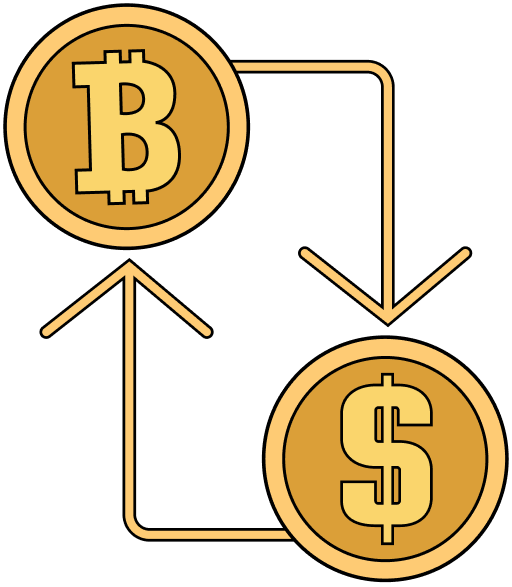WePay
WePay is an online based in the United States that provides an integrated and customizable payment through its to platform businesses such as sites, marketplaces and small business software companies. It offers partners fraud and risk protection.
Contents
History
WePay was founded by Rich Aberman and Bill Clerico in 2008 in , and is now headquartered in . The original inspiration for WePay occurred to Aberman when he had difficulty raising money for his brother’s . Aberman had to collect $4,200 from 14 friends spread across the United States to pay for at a club, rent at a Florida beach house, and food. Through a series of cash, checks, and PayPal money transfers, Aberman was eventually able to collect the money he needed. Aberman found the process very burdensome and believed that there should be an easier way to collect money from people. After studying PayPal‘s weaknesses, Aberman asked Clerico to help him to solve this problem and create WePay.
Aberman and Clerico were accepted by in California, which prompted Aberman and Clerico to move the company to the . On the West Coast, they received monetary support from , a cofounder of PayPal, and , an . By December 2010, WePay had raised $9 million in funding. In May 2011, founders Bill Clerico and Rich Aberman were named two of the Best Young Tech Entrepreneurs by .
Aberman and Clerico found trouble seeking traction in the peer-to-peer group payments space so they decided to shift the focus of the company to help small businesses accept credit cards online. WePay then realized that the highest growth part of their business and the one where they had a unique value proposition was through its APIs, which they had opened up in 2011. In 2014, WePay discontinued its donation service to focus on its other products. In 2015, WePay raised a $40 million round from and the Japanese e-commerce company . According to CEO Bill Clerico, the purpose of this round was to accelerate WePay’s efforts to expand its efforts to support payments in more countries internationally. In October 2017, announced that it would acquire WePay for a reported valuation of over $220 million.
Services
WePay is a privately held company that offers payment capabilities to business platforms and makes money by charging service fees when processing funds. WePay enables secure, customized, and frictionless payments to platforms through its APIs.
WePay offers fraud and risk protection as a service through its proprietary risk prevention system and through several third party vendors. The company detects fraud by using a number of data sources, including social data connections as well as machine learning algorithms. According to Aberman, “[WePay uses] your online identity to verify your identity in the real world.”
WePay offers partners three levels of customer support. Silver is the base level of support for platform businesses during standard business hours via email. Gold is a higher level of support that includes supporting customers through phone calls, email, and quicker response time. Platinum receives the highest level of support with 24/7 all-week service through all mediums and a dedicated technical account representative. In 2016, WePay was awarded over 7 Stevie Awards for excellence in sales and customer service. There were over 21,000 award nominations across all industries and over 500 domestic and international executives in attendance.
Growth
According to WePay’s CEO Bill Clerico, “We serve some big, global crowdfunding sites and marketplace platforms, and we want to help them move money all over the world.” In early 2015, WePay opened its services to businesses in Canada. In 2016, the payment facilitator also announced opening operations for businesses in the United Kingdom.
In 2016 the Silicon Valley Business Journal shared that WePay is among its top 500 fastest growing privately held startups with over 1500% growth from the prior year. In September 2011, the company employed 30 people. Co-founder Clerico stated in an interview with Forbes contributor Elizabeth Woyke that billions of dollars are channeled through the company’s services each week. After its Series D round in 2015, the company said that it had over 100 employees, and had plans to grow to 200 in the next 18 months. WePay now has over 180 employees located in California, Rhode Island, and the UK. WePay has also been recognized by multiple sources like PR Newswire as one of the best companies to work for in the Bay Area.
Partnerships
Since its inception, WePay has partnered with over 1,000 businesses and nonprofits. It is considered a market leader among payments providers for crowdfunding sites and small business tools. Some partners include GoFundMe, Ecwid, Freshbooks, Ticketbud, Infusionsoft, Classy, Buildertrend, Constant Contact, and Meetup. The company has also partnered with both Apple Pay and Android Pay to enable customers to transact those forms of payment.
Movements
The founders of WePay made an unexpected appearance at PayPal’s 2010 developer conference in San Francisco, California. The stunt involved dropping a 600-pound block of ice filled with hundreds of dollar bills. The statement was that PayPal freezes your money and that better payment processors exist.
In 2011, the company was used by many supporters to donate money to the movement, which resulted in a surge of transactions. Dominic Basulto of called WePay the “ official way” to give financial donations to the Occupy movement “while simultaneously bypassing the largest financial institutions”. By October 27, 2011, over 8,000 donors from 37 countries had donated $325,000 to the movement. The donations are funneled through 300 Occupy-affiliated accounts, which are linked on Occupy Wall Street’s website, , and Facebook accounts.
WePay has supported fundraising efforts for hundreds of disaster relief campaigns and humanitarian causes through crowdfunding sites such as GoFundMe, YouCaring, Razoo, Crowdrise and Rallybound. Some of these campaigns relate to Hurricane Sandy, Earthquakes in Nepal, the Sandy Hook Elementary School shooting, the Orlando Nightclub Shooting and many more. However, WePay declined to process payments for over $24,000 in donations to affected by the .














 Twitter
Twitter
 Telegram
Telegram
